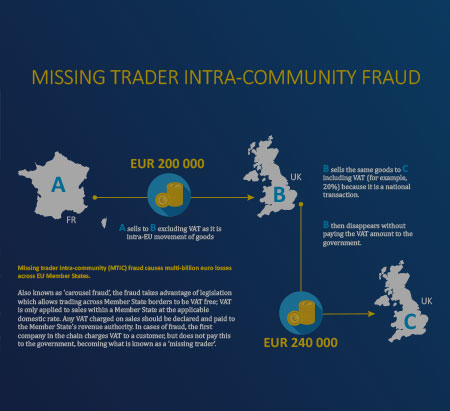The global acceptance of the euro as a stable currency with low rates of inflation makes it an attractive currency for counterfeiters. Europol works with partners across the world to fight the counterfeiting of the euro.
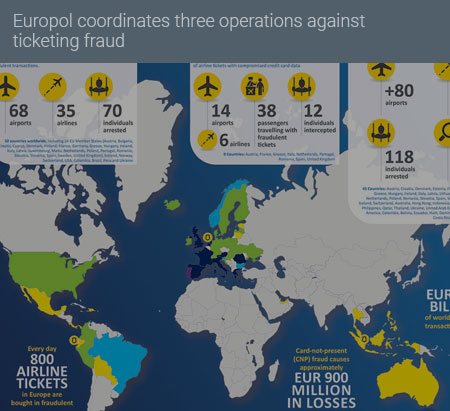
Download the Europol publication "Payment Card Fraud Prevention Alert":
Download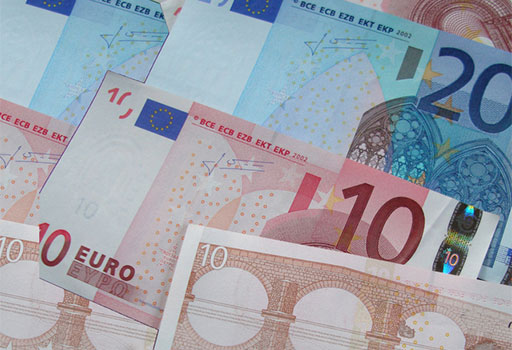
Italian authorities seized counterfeits amounting to approximately EUR 78 million in an operation initiated by Europol. Based on the forensic examination and technical investigation performed by Europol, the Italian authorities disrupted a criminal organisation and prevented huge economic damage. Two print shops and a depot were discovered along with counterfeit banknotes of 50 euro denomination. The seizure and the success of the joint operational efforts prevented these counterfeits entering into circulation.
As the European Union’s central office for combating euro counterfeiting, one of the key functions of Europol is to act as the worldwide contact point for combating counterfeiting of the euro. Europol is involved in all major euro counterfeiting investigations in the EU, including joint investigation teams providing financial, forensic support and on-the-spot assistance.
In November 2014, Italian law enforcement authorities, with the support of Europol, arrested 53 individuals suspected of being part of an organised crime network responsible for the global distribution of counterfeit money. Following an extensive investigation beginning in 2012, supported by Europol and the European Anti-Fraud Office (OLAF), Carabinieri were able to piece together the methods by which the criminal group gained complete control of the international counterfeit euro market. They distributed significant quantities in Italy and all over the world through their close-knit network.
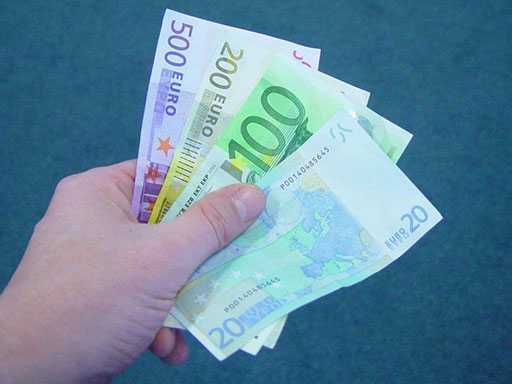
Working with Europol, Spain’s Brigada de Investigacion del Banco de Espana (BIBE) and the US Secret Service, Colombian National Police dismantled an illegal digital print shop producing counterfeit currency. On 13 March 2014, 50 police officers raided seven premises in the suburbs south of Bogotá. Six Colombian citizens were arrested. Europol provided analytical, financial and forensic support to the investigation, with a Europol specialist present in Bogotá to examine seized currency and equipment.
Italian organised crime groups continue to be involved in the counterfeiting of the euro. Europol works with law enforcement authorities in Europe to disrupt these groups.
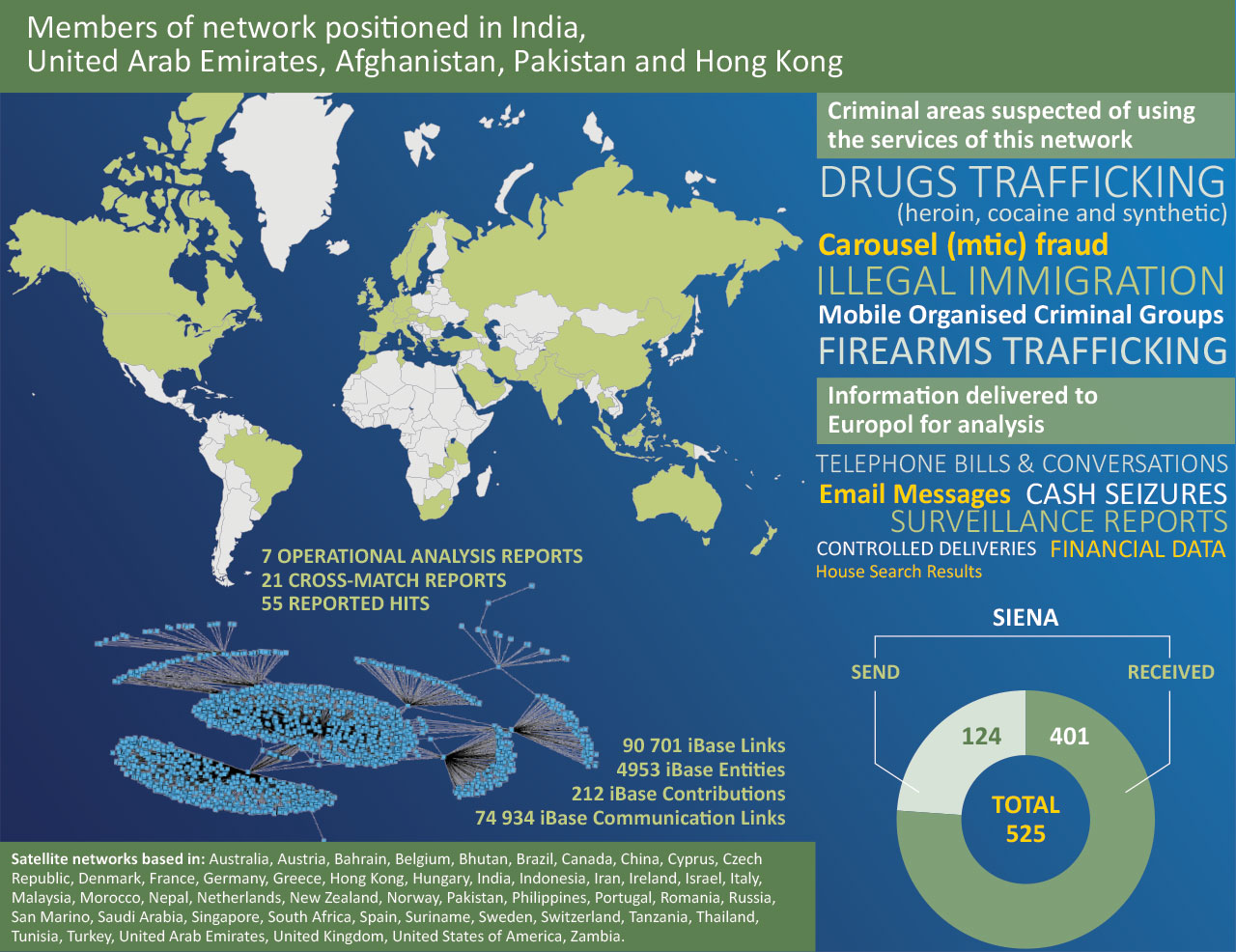
When money talks, you listen. That is the first thing you learn when you get involved in financial investigations. And money will never fail you, it will always talk.
Even when all your sources dry out, when witnesses are afraid to come forward, when suspects respect their ‘Omerta’, and when there is no surveillance, no documents or telephone interceptions to help you, money will always talk. You just need to know how to listen.
The high degree of sophistication of money laundering networks remains sometimes unconceivable even for investigators in financial and organised crime. Such syndicates operate on a global scale, involving an army of accomplices and are capable of laundering several hundreds of millions of euros per year.
One remarkable example: project Stauen, undertaken by law enforcement authorities from the UK, the Netherlands, Germany, Australia, and supported by Europol. The project aims at dismantling a money laundering syndicate and at identifying the principals of the organised criminal groups that were using its services. Significant links to several other European jurisdictions (Belgium, France, Italy and Spain) were detected.
There would be one sole individual responsible for organising the collection of the ‘dirty’ money, for their delivery to a layering destination1, for providing further transfers and for facilitating the physical disposal of funds to the criminal group when needed. And the flows would be balanced through compensation systems whereby illegal proceeds are substituted for legitimate funds and no physical cross border movement of cash would ever take place.
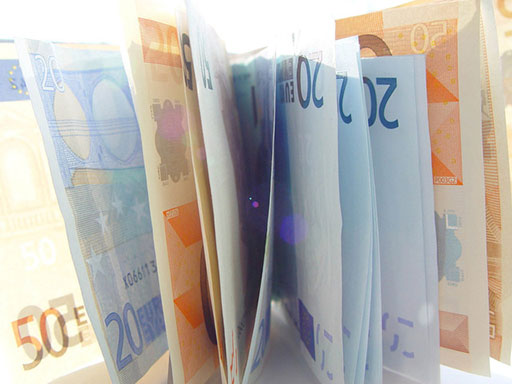

Organised crime activities are profit driven, therefore confiscation is a strategic priority in the EU’s fight against organised crime. The confiscation and recovery of proceeds from crime deprives criminals of what they have worked hard to acquire. Europol estimates that criminal proceeds to the value of approximately EUR 6 billion are frozen and seized annually in the EU.
But before criminal proceeds can be confiscated by courts, they need to be traced and identified by law enforcement. Europol actively supports EU Member States to trace these criminal proceeds in Europe but increasingly also on a global level with the support of the Camden Asset Recovery Inter-Agency Network (CARIN) of asset recovery experts from 54 countries.


In the spring of 2014, Europol supported an operation tackling the distribution of prescription-only counterfeit medicines via the Internet in the EU. Along with investigations on the supply and online distribution of counterfeit medicines, the money laundering activity of the organised criminal group was also targeted. The Europol Criminal Assets Bureau traced and identified the criminal proceeds mainly by following the financial flows, in cooperation with the Asset Recovery Offices of the countries concerned.
Payments of EUR 9 million in France and EUR 12 million in the UK were identified in transactions involving counterfeit and unlicensed medicines. In Austria, six people managed to sell the fake pharmaceutical products to at least 120 000 people via the Internet. One of the main perpetrators confessed that he had earned more than EUR 9000 per month by selling the fake drugs.


A fraudster pretending to be one of the club’s executives instructed an employee of a European football club to pay EUR 100 000 for a player transfer. The administration of the football club realised the fraud a week later. However, Europol in close cooperation with the relevant authorities in the Czech Republic, managed to freeze the money.
This fraud - the CEO fraud - is a new trend increasingly threatening businesses across Europe. Fraudsters call subsidiaries of multinational companies impersonating a company executive, such as the Chief Executive Officer (CEO).
They instruct an employee to carry out an urgent and confidential money transfer to another country. The money is then immediately routed further, in many cases to bank accounts in Asia. Europol closely co-operates with Member States to freeze the bank accounts as soon as possible, before the money is transferred.


